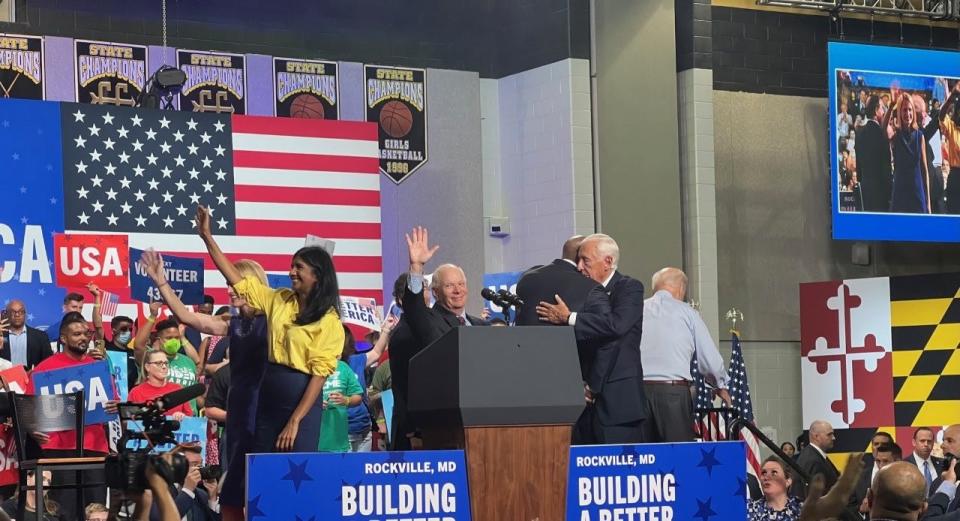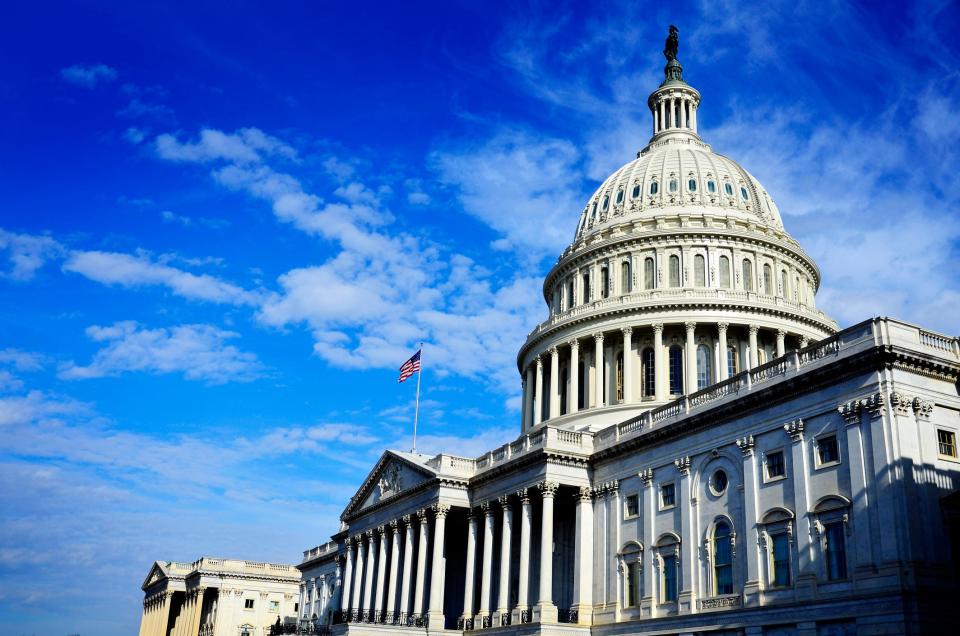A ‘showcase of what matters to Maryland voters’: The candidates competing for U.S. Senate
- Oops!Something went wrong.Please try again later.
In less than a year, Maryland is scheduled to elect its next United States senator. About six months stand between today and the May 14 primary in which each party’s candidate is picked.
During a year in which American voters also have a selection for president at the top of the ballot, Democratic U.S. Sen. Ben Cardin’s announcement earlier this year not to run for re-election leaves an opening for one of Maryland’s two seats in the U.S. Senate, the only statewide federal elected office.
“It’s a prestigious position,” said Carin Robinson, associate professor of political science at Hood College in Frederick. Cardin’s departure creates a circumstance which, in Robinson’s words, does not “come around very often.”

The seat was last open, with no incumbent, in 2006. The state’s other seat has been filled by U.S. Sen. Chris Van Hollen, D-Md., after he won election to that office for the first time in 2016.
“A U.S. Senator has to speak on behalf of the state,” Robinson said. The election, she said, “will be a good showcase of what matters to Maryland voters.”
U.S. Senate candidates hear from Marylanders what top issues are
Some campaigns have been underway since May; others began much later. Across party lines, the most evident commonality between the campaigns is each ultimately depends on Maryland voters for electoral victory.
In wide-ranging interviews with Maryland’s USA TODAY Network, three candidates — two Democrats and one Republican — were asked first what issues they were hearing from residents as they were going around the state campaigning.
Not one cited the national issues (i.e., past election results, abortion) that have dominated discourse and debate in last year’s midterm elections and the Maryland gubernatorial contest. One cited the climate and the Chesapeake Bay, two of the three discussed housing, and all three brought up education.
‘That’s why this campaign is so important’
In the Democratic field, the campaigns’ contours, as well as the ultimate path to victory next November, is clearer in a state with more than twice as many registered Democrats as Republicans. For the GOP, less seems assured, both about the field and the way to win statewide.
The two Democratic candidates — Prince George’s County Executive Angela Alsobrooks and U.S. Rep. David Trone, D-6th — with the most experience (and money) in the race were interviewed.
Both were elected to their current positions in 2018 and re-elected again just last year. Both ran in, won, and worked for jurisdictions with roughly similar sized populations. And, on a shared biographical note, both candidates were born in the same county (Prince George’s).
Those two candidates’ distinct differences — in race, in gender, and (key to political advertising) in wealth — are considerations that have already come up during the campaign. Trone looks to cross the U.S. Capitol from the House to the Senate while Alsobrooks looks to cross the Beltway, aiming to be a legislator at the highest realm of national power in a country, which historically, has not always permitted that to even be a possibility for those in her demographic, and for those without certain markers of wealth.
With two of the three current Republican candidates defeated on the party’s ballots just last year, a newcomer, retired U.S. Air Force Brigadier General John Teichert, also became the central subject of an interview.
When to look out for Senate candidate profiles

“This should be about electing the person that’s going to make lives better for people in Maryland and the United States,” Trone said of the campaign, his first statewide.
Quoting a former boss, Teichert called the listening he was doing while traveling across the state during his first campaign “squinting with (his) ears.”
Alsobrooks also emphasized listening during her first federal and first statewide campaign, in her words, “hearing from people about the things they care about.”
“Spending time around the state,” she said, “that’s why this campaign is so important.”
USA TODAY Network in Maryland has produced profiles of Alsobrooks, Trone, and the Republican field, including Teichert. Alsobrooks and Trone's profile stories will appear online Monday. The GOP candidates will appear Tuesday.
This article originally appeared on Salisbury Daily Times: What those competing for Maryland's open U.S. Senate seat are hearing

